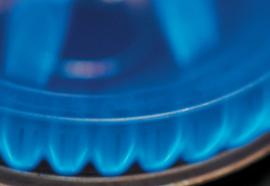Vendor Neutral
(April 2012) MidAmerican Energy awarded a contract to Siemens Energy to supply wind turbines for its 407-MW project expansion. American Electric Power began operating the 580-MW Dresden natural gas-fired combined-cycle power plant. Duke Energy and ChinaHuaneng Group signed a three-year agreement expanding their research cooperation to include coal and carbon capture and sequestration technologies. And others...




